facialrecognition
Latest
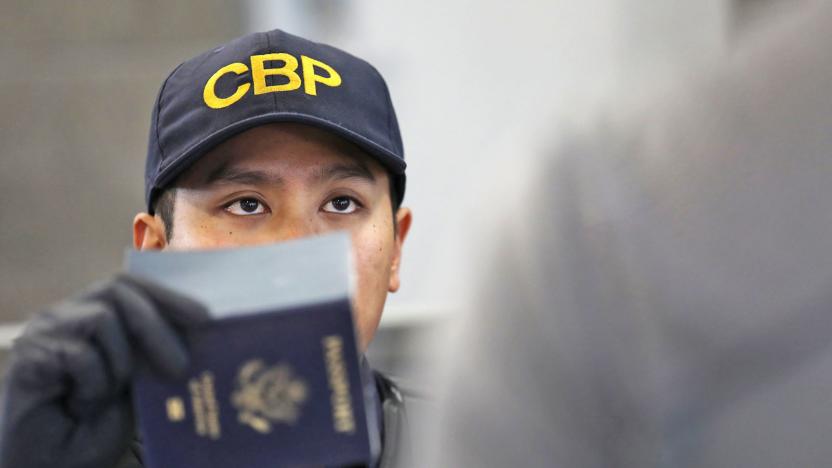
DHS will use facial recognition to scan travelers at the border
Last year, the Department of Homeland Security (DHS) put out a notice, saying it was looking for a facial recognition system that could work with images taken of people inside their cars. The idea was that such a system could be used to scan people entering and leaving the country through the US/Mexico border and match them to government documents like passports and visas. Now, The Verge reports that DHS will be launching a test of a system aiming to do just that.
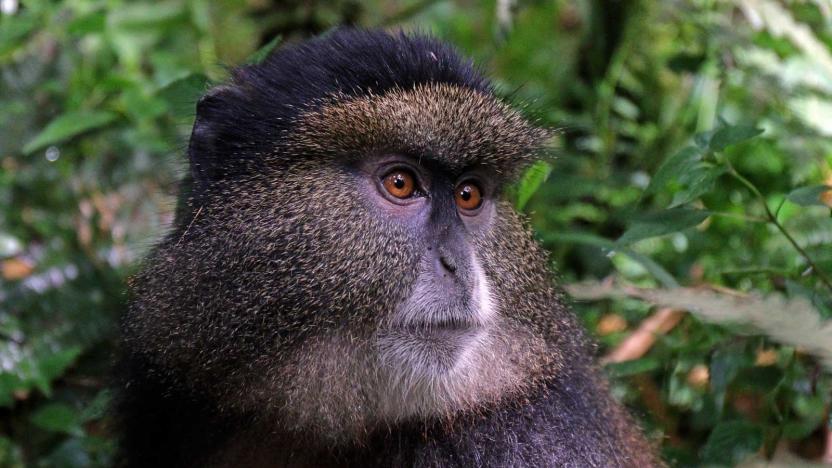
Facial recognition may help save endangered primates
Facial recognition isn't limited to humans. Researchers have developed a face detection system, PrimNet, that should help save endangered primates by tracking them in a non-invasive way. The neural network-based approach lets field workers keep tabs on chimpanzees, golden monkeys and lemurs just by snapping a photo of them with an Android app -- it'll either produce an exact match or turn up five close candidates. That's much gentler than tracking devices, which can stress or even hurt animals.

Orlando confirms it's testing Amazon's facial recognition in public
After the ACLU discovered that Orlando's cops are using Amazon's controversial Rekognition facial detection system, police chief John Mina said they're only testing the software at their headquarters. Now, Mina has admitted at a news conference that three of the city's IRIS cameras downtown are also equipped with the software. He insisted that despite Rekognition's presence in public cameras, it can still only track the seven officers who volunteered to test the system. Mina admitted that they could use the software to track persons of interest in the future, but they're "a long way from that."
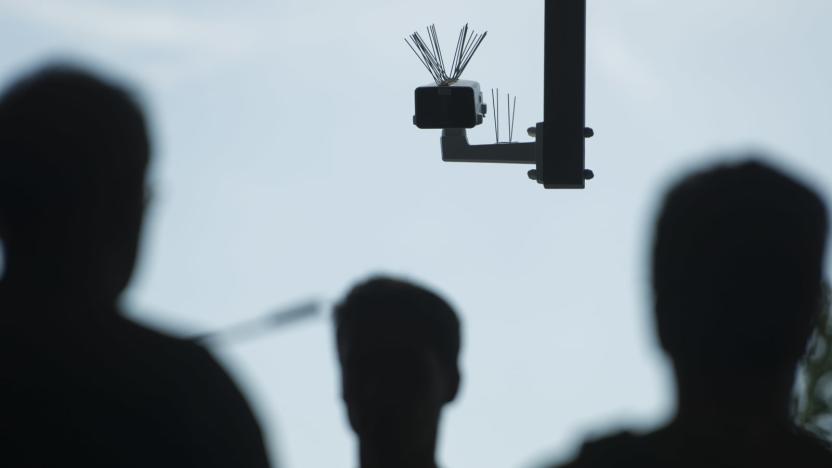
Amazon is selling facial recognition tech to law enforcement
If you're nervous about the privacy implications of Amazon's camera technology, there might be a good reason for it. The ACLU and a coalition of civil rights groups are calling on Amazon chief Jeff Bezos to stop offering Rekognition facial detection system to government customers after learning that the company is actively helping law enforcement implement the potentially invasive technology. Police in multiple regions have partnered with Amazon on surveillance projects, including an Orlando proof-of-concept that lets Amazon search for "people of interest" through city cameras as well a Washington County, Oregon initiative that lets officers scan people to see if they turn up in a mugshot database.

Chinese school uses facial recognition to make kids pay attention
Civilian surveillance in China has seen a boom in recent times, with facial recognition leading the charge in the technologies used to keep tabs on the population. Police are scanning travelers with facial recognition glasses, authorities are using the tech to monitor ethnic minorities -- now the Orwellian technology has a new target: kids. According to government-run Chinese website Hangzhou.com, a school has installed facial recognition technology to monitor how attentive students are in class.
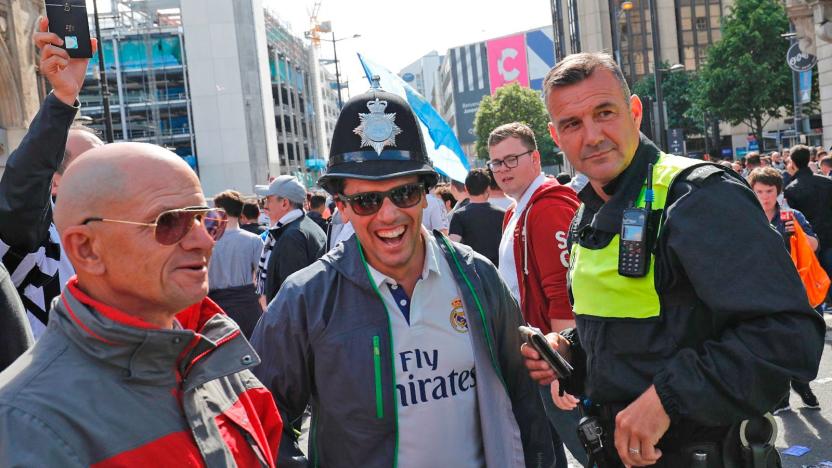
Police face recognition misidentified 2,300 as potential criminals
Ask critics of police face recognition why they're so skeptical and they'll likely cite unreliability as one factor. What if the technology flags an innocent person? Unfortunately, that caution appears to have been warranted to some degree. South Wales Police are facing a backlash after they released data showing that their face recognition trial at the 2017 Champions League final misidentified thousands as potential criminals. Out out of 2,470 initial matches, 2,297 were false positives -- about 92 percent.
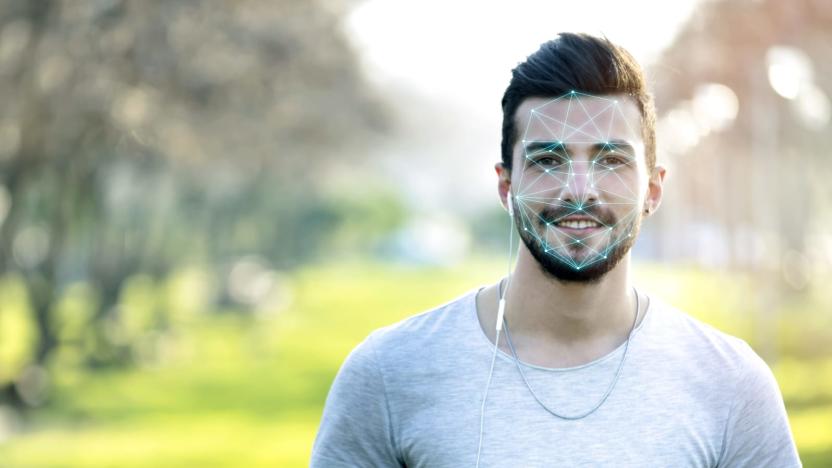
Ticketmaster hopes to speed up event access by scanning your face
Ticketmaster envisions a future wherein you no longer need either a physical or a digital ticket to get into a venue. Its parent company Live Nation, has announced that the ticket sales giant has teamed up with and invested in a face recognition company called Blink Identity. In its first quarter financial report (PDF), Live Nation has explained that Blink has "cutting-edge facial recognition technology, enabling you to associate your digital ticket with your image, then just walk into the show."

Facebook only checks for impostors within your circle of friends
When you go to Face Recognition in Facebook's Settings page, there's a link that leads you to more info about it that says switching it on can "help protect you from strangers using a photo of you as their profile picture." That pertains to a feature Facebook launched in March that's supposed to tip it off if somebody is impersonating you. According to a new report by The Washington Post, though, the technology won't quite solve Facebook's problem with fake accounts. The social network has admitted to the publication that it mostly looks for impostors only among your friends and friends of friends.

Axon opens ethics board to guide its use of AI in body cameras
Axon (formerly Taser) is keenly aware of the potential for Orwellian abuses of facial recognition, and it's taking an unusual step to avoid creating that drama with its body cameras and other image recognition systems. The police- and military-focused company has created an AI ethics board that will convene twice per year (on top of regular interactions) to discuss the ramifications of upcoming products. As spokesperson Steve Tuttle explained to The Verge, this will ideally establish a set of "AI ethics principles" within police work where certain uses are off-limits.
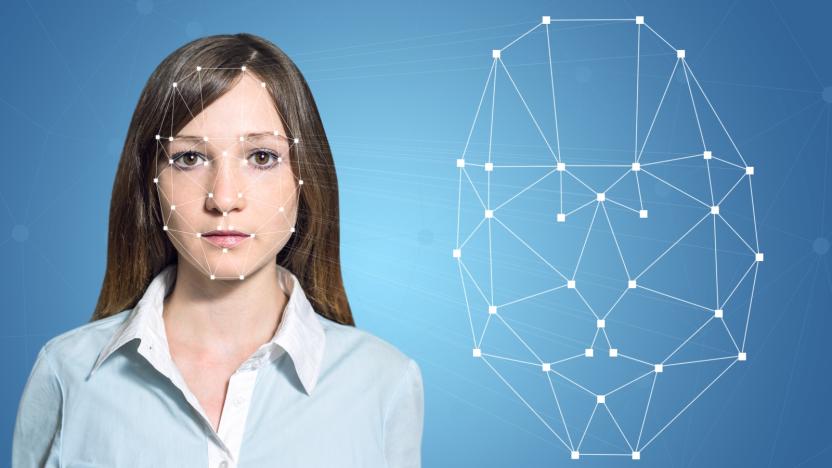
Facebook class action lawsuit over facial recognition OK'd by judge
Facebook has been trying to get a lawsuit claiming its facial recognition tech violates an Illinois privacy act dismissed for years. Well, that's not going to happen anytime soon, because San Francisco federal judge James Donato -- the same judge who denied Facebook's motion to dismiss in 2016 -- has just given the case the go-ahead to proceed as a class action lawsuit. "Plaintiffs' claims are sufficiently cohesive to allow for a fair and efficient resolution on a class basis," he wrote in his ruling.
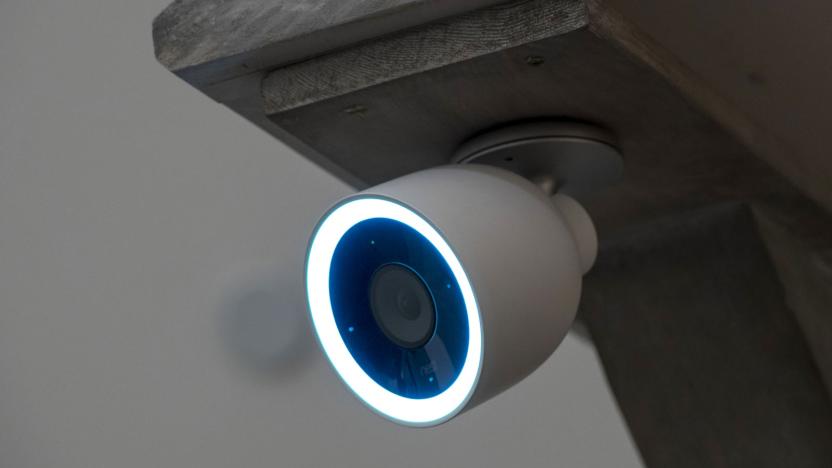
Nest’s outdoor facial recognition camera is available in Europe
Nest released the weather-ready version of its facial recognition-equipped camera, the Cam IQ outdoor, last fall in the US. The device would theoretically notify you only if it recorded someone it hadn't seen before, so your kids playing in the yard wouldn't trip the alarm. Now, half a year later, the camera is headed to Europe.
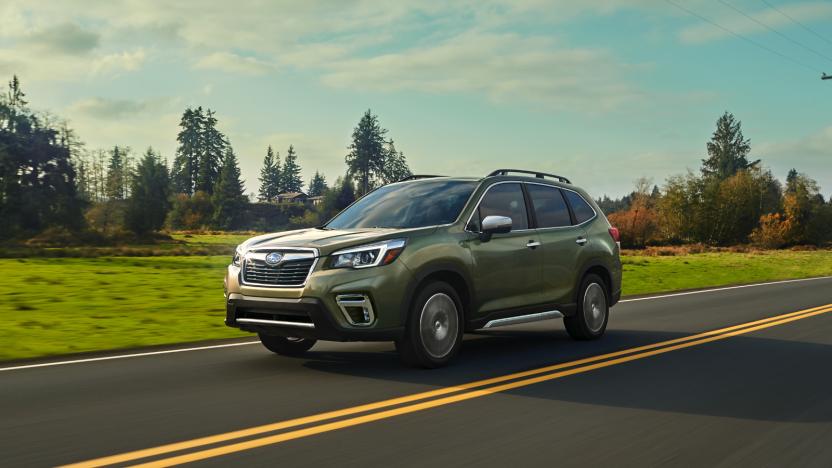
The new Subaru Forester can tell if you're sleepy or distracted
Subaru isn't exactly known for developing emerging technologies for its vehicles, so we'll bet you'd never expect the automaker to equip the 2019 Forester with facial-recognition technology. But that's exactly what it did -- Subaru has announced at the New York International Auto Show that it developed a feature for the vehicle that uses facial recognition to detect driver fatigue and distraction. "DriverFocus" comes as a standard feature for the most expensive Touring version of the vehicle, though it's unclear if you can pay extra to have it installed on another model.
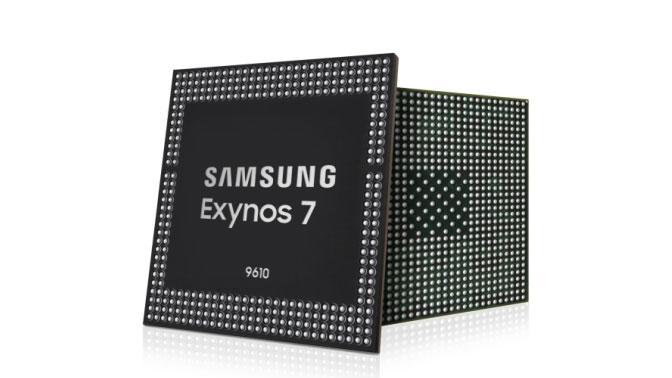
Samsung's new Exynos chip boosts photo-taking in mid-tier phones
Samsung's latest application processor (AP) is set to significantly improve photo-taking in mid-tier phones. The Eyxnos 7 9610 has boosted deep learning image properties, so it'll recognize faces in pictures even if they're not facing the camera, or if they're obstructed by hair or hats.

Madison Square Garden has been secretly scanning visitors' faces
Attended an event at Madison Square Garden recently? The arena's security system might recognize you the next time you visit. According to The New York Times, the arena's management has secretly been using facial recognition as part of its security measures for quite some time now. They use cameras to capture images of people and then run the photos through an algorithm that can compare them against a database of images.
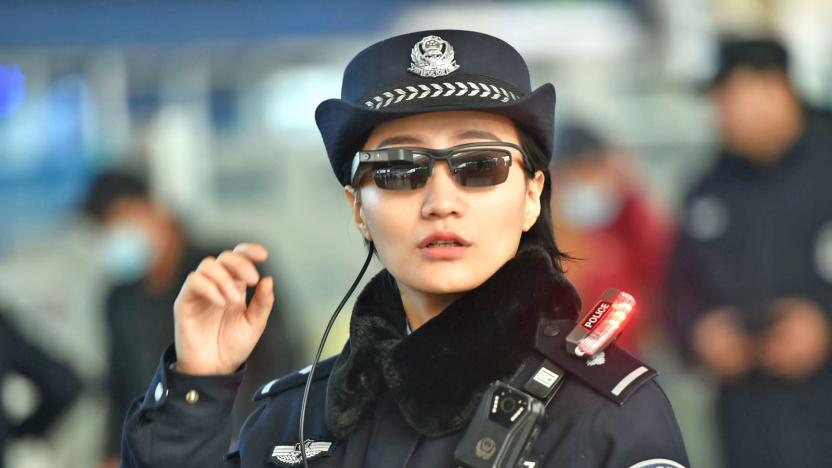
China’s law enforcement expands use of facial recognition glasses
Police in China are expanding their use of facial recognition glasses. Last month, law enforcement in the country used LLVision Technology's facial recognition glasses to spot criminals evading the law or train and plane passengers using fake IDs among the millions traveling for the lunar new year. Now, Reuters reports, police are using them to check travelers and car registration plates outside of Beijing ahead of Parliament's annual meeting in the city.

How security became more important than convenience
Since the dawn of infosec, the belief that we users are a group of dullard cattle who blindly trade our own security for convenience at every turn has been trumpeted by the stewards of IT and the infosec-arrogant, while bolstered by old research. Not anymore, says a new in-depth study from IBM on consumers' relationships with biometrics, authentication and the future of identity. If they have a choice, consumers now prefer taking extra security steps over using "123456" as a password.
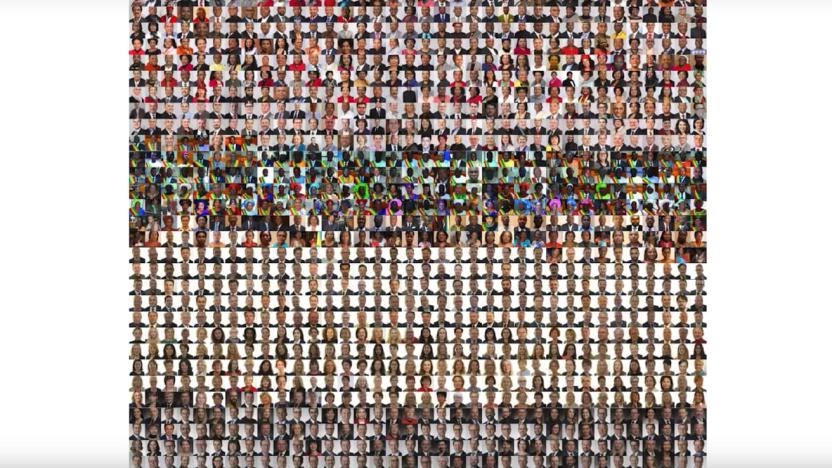
AI facial analysis demonstrates both racial and gender bias
Researchers from MIT and Stanford University found that that three different facial analysis programs demonstrate both gender and skin color biases. The full article will be presented at the Conference on Fairness, Accountability, and Transparency later this month.

Police in China are scanning travelers with facial recognition glasses
Police in China are now sporting glasses equipped with facial recognition devices and they're using them to scan train riders and plane passengers for individuals who may be trying to avoid law enforcement or are using fake IDs. So far, police have caught seven people connected to major criminal cases and 26 who were using false IDs while traveling, according to People's Daily.

Twitter uses smart cropping to make image previews more interesting
Twitter's recent character limit extension means we're spending more time reading tweets, but now the site now wants us to spend less time looking at pictures. Or more specifically, less time looking for the important bit of a picture. Thanks to Twitter's use of neural networks, picture previews will now be automatically cropped to their most interesting part.
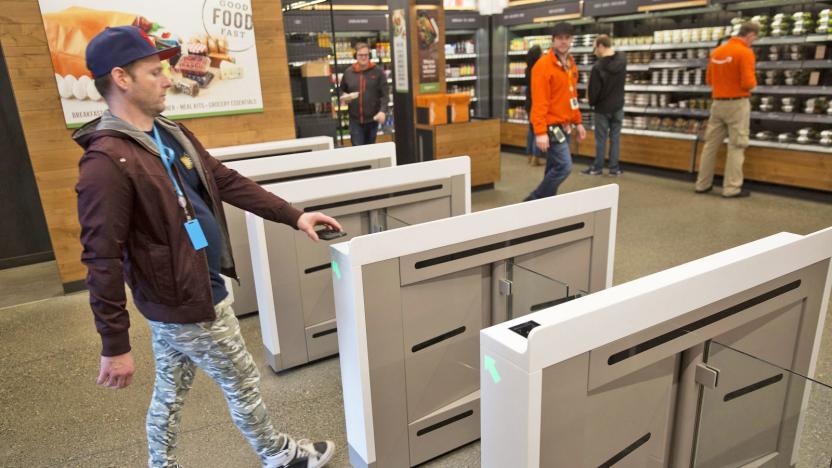
Amazon’s convenience store of the future makes me nervous
Half a decade in the making, and after a year of intensive testing, Amazon's cashier-free convenience store is opening to the public. Amazon Go, located at the base of the company's Seattle HQ, is the first of its kind: a convenience store with no checkouts, no lines and no stress. Simply walk in, select your purchases and walk out -- a seamless, frictionless, fast way to grab a sandwich for lunch. At least that's the story Amazon wants you to know.







